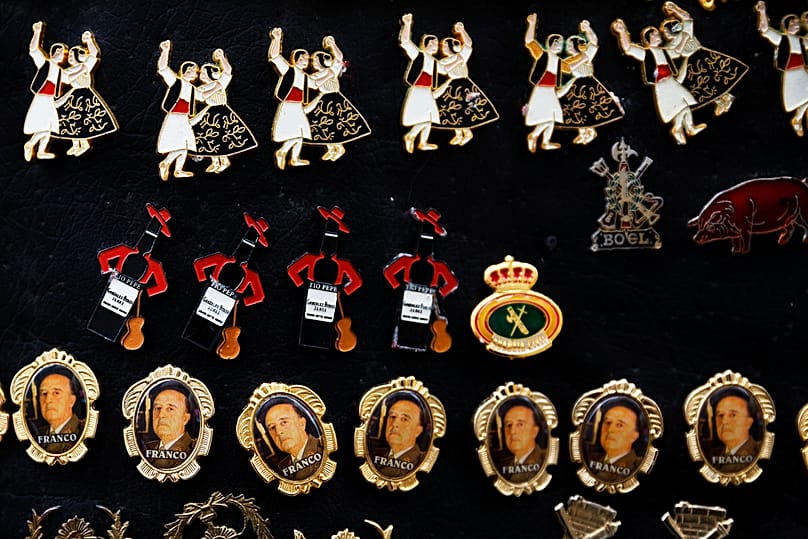Half a century after Francisco Franco's death, his legacy still sparks debate in Spain, with some young people showing nostalgia for his regime amid rising far-right influence.
Half a century has passed since his death, yet Spain's fascist dictator Francisco Franco still casts a long shadow.
 ADVERTISEMENT
ADVERTISEMENT
 ADVERTISEMENT
ADVERTISEMENT
More than a fifth of Spaniards now view the Franco dictatorship favourably, with young people most likely to consider democracy inferior to authoritarian rule, according to new government data.
The Centro de Investigaciones Sociológicas (CIS) found that 21.3% of Spaniards rate the years of Franco's dictatorship as "good" or "very good." Among those aged 18-24, 14.4% said the current democratic system is worse than the Franco regime — the highest proportion of any age group and an unprecedented figure since tracking began in 1979.
"Never in all our history have so many young people questioned democracy in Spain," said Javier Lorente, professor of political science at Universidad Rey Juan Carlos. "It is worrying that some young people are beginning to see authoritarian alternatives as valid options."
The findings come 50 years after Franco's death and coincide with the rise of far-right parties and the spread of revisionist narratives on social media.
Not necessarily a boom
Óscar Iglesias, director of the CIS presidential cabinet, said the data do not indicate a Francoist surge. Only 8.6% of respondents would prefer an authoritarian regime, he noted, adding that most young people "are aware of what Francoism meant in terms of repression."
The survey of more than 4,000 citizens found 17.3% consider democracy worse than the dictatorship — a "significant" minority, Iglesias acknowledged, but not a majority position.
"There is a majority democratic consensus in Spanish society," he said.
The CIS data show 23.3% of 18-24 year-olds intend to vote for the far-right party Vox in a general election, second only to the Socialist Party's 24.6% among that age group.
Iglesias attributed the revisionism to far-right messaging that strips away historical context. "They are removing the whole context of repression and lack of freedom," he said. "Polarisation is accentuating this and some extreme right-wing parties are using it to gain support."
The whitewashing of social networks
Lorente said revisionist narratives spread through a "related media ecosystem" beyond Vox's official communications, including memes and decontextualised content that trivialise the dictatorship.
"Social networks are whitewashing the authoritarian past through decontextualised narratives," he said. "The mobile phone eliminates the replication that used to exist when television was watched in the family."
Artificial intelligence poses additional challenges by enabling the creation of realistic fabricated images and audio, Lorente added.
Both experts agreed that trivialisation through memes and videos without context has contributed to the problem.
Despite the concerning trends, Lorente cautioned against dramatising the situation. He noted there is no clear empirical evidence linking social media growth directly to rising Francoist sentiment.
"Spanish democracy is not immediately threatened," he said, "although it always starts at some point."















